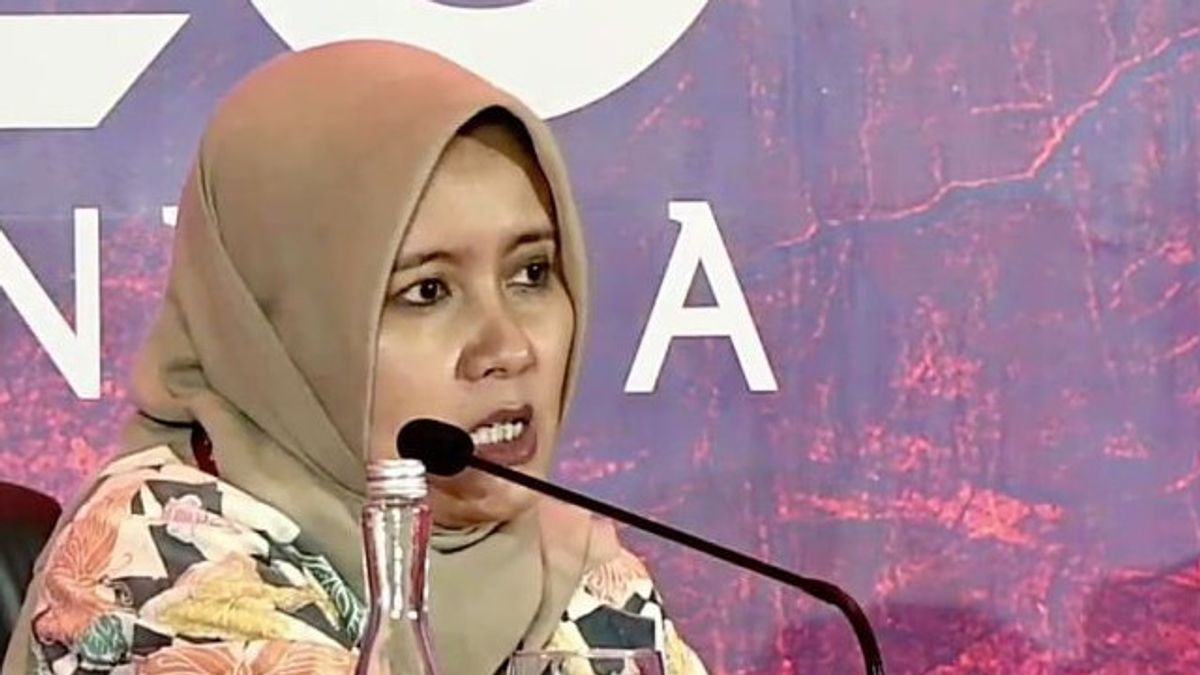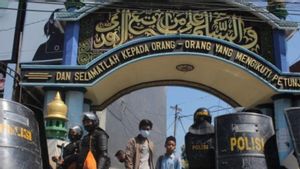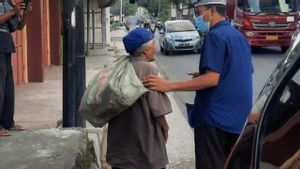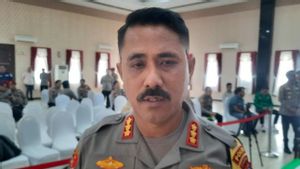JAKARTA - Russian Finance Minister Anton Siluanov and Ukrainian Finance Minister Serhiy Marchenko are scheduled to attend the 3rd meeting of the G20 Finance Ministers and Central Bank Governors (FMCBG) on July 15-16, 2022, virtually.
However, Russia also sent its delegation to attend the 3rd G20 Deputy for Finance and Central Bank (FCBD) meetings in person at BNDCC, Nusa Dua, Badung, Bali, July 13-14.
The Head of the Center for Climate Change and Multilateral Financing Policy at the Ministry of Finance, Dian Lestari, said that although the Russian finance minister was present virtually, he still directly led his delegation at the intervention session or the delivery of opinions at the 3rd FMCBG meeting, which also took place at BNDCC Nusa Dua, Bali.
"Russia's ministers will be present virtually, while the deputies will be physically present, on site, listening, but the intervention will come from the minister," said Dian as quoted by Antara, Tuesday, July 12 night.
The presence of the Russian finance minister virtually did not reduce the quality of the main meeting of the G20 Finance Track.
“They could be actively discussing in intervention sessions or presenting views on the global economy, which discusses the current challenges of the impact of war. Russia as a member of the G20 is given the opportunity to express its views," said the official from the Indonesian Ministry of Finance.
Meanwhile, the Ukrainian finance minister at the 3rd FMCBG G20 meeting this year also attended the intervention session as a guest.
"We've invited Ukraine. This is the same as the 2nd FMCBG in February. Ukraine (at the 3rd meeting, ed.) we invited in session 1 for intervention, conveying the perspective of Ukraine with what war conditions were a challenge both from a national perspective, then from the context of Ukraine as a global community, especially related to food issues (food, ed.)," said Dian Lestari.
The presence of the Russian delegation, which is a member of the G20, and the delegation from Ukraine as invited guests at this year's G20 meeting, have attracted the attention of many parties because the conflict between the two countries can trigger crises in various sectors, especially food, energy and world finance.
The 3rd meeting of G20 finance ministers and central bank governors also highlighted this threat, reflected in one of the meeting agendas which discussed the global economic situation and the risks that G20 member countries must anticipate.
“At FMCBG, ministers will discuss seven agendas. First, regarding the global economy and its risks, it always starts from that, because we (want to) ensure the G20's perception of global economic risks so that it underlies the chosen agenda, policies and initiatives taken to address (the problem)," she said.
In the session discussing the risks to the world economy, several issues were highlighted, including the crisis due to the COVID-19 pandemic and Russia's aggression in Ukraine, then the impact of the war on food, energy, and the financial sector.
VOIR éGALEMENT:
In the first session, the ministers will also discuss the policy normalization strategy in the midst of a crisis, and continue to discuss policies that need to be taken to overcome various challenges and anticipate existing risks.
However, before the ministerial meeting takes place, the deputies will discuss the issue technically and in detail first at the 3rd meeting of the FCBD.
“Deputies (at FCBD) meet to prepare (the draft) of outcomes (results, ed.) or things that will be agreed upon at the ministerial level. So more or less it was discussed technically and in detail at the deputy level. At the ministerial level, we will receive directions that are more strategic in nature and ultimately lead to the results of the meeting which is the G20's commitment to various initiatives, the aim of which is to overcome the global problems we face," said Dian Lestari.
Not only mapping global economic risks, the ministers, central bank governors, and G20 deputies also discussed health issues, international financial architecture, financial issues, sustainable finance, infrastructure, and taxation.
The English, Chinese, Japanese, Arabic, and French versions are automatically generated by the AI. So there may still be inaccuracies in translating, please always see Indonesian as our main language. (system supported by DigitalSiber.id)
















